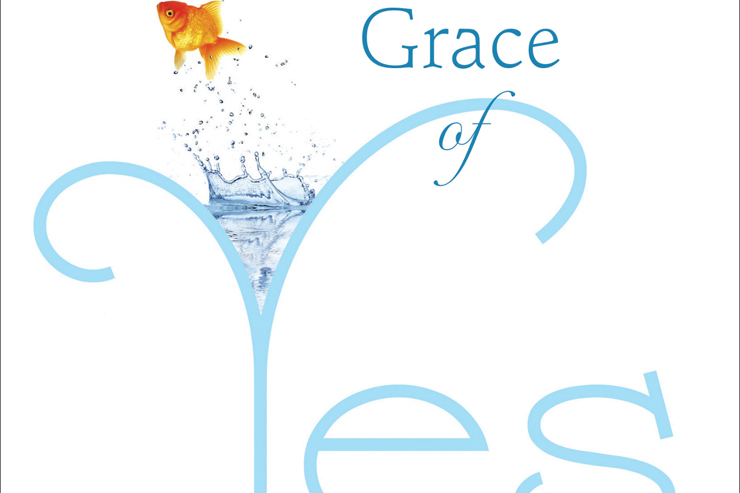
I have had the joy of guiding tens of thousands on pilgrimage within St. Peter’s Basilica in the Vatican. Part of the tour involves identifying some of the huge marble statues found throughout Christianity’s most famous Church. Many of them depict saints, but even more depict the Christian virtues. From pre-Christian Roman times, the virtues have always been depicted as women, because women were considered more stable than men. The virtue of justice, for example, is a woman with scales in her hand, giving to each his due; the virtue of faith, a woman with a crucifix; the virtue of contemplation, a woman with a Bible looking up to heaven. I generally quiz the pilgrims about what virtue they thought is being depicted, so that they will acquire the ability to “read” the message being conveyed just like Christians in previous centuries did so easily. Over the course of the two-hour visit, most get good at making educated guesses.
I have always been surprised, however, by how many pilgrims fail, toward the end of the tour, to get one of the virtues depicted on Bernini’s famous funereal monument of Pope Alexander VII: a woman with three young children, one in her arms and two playing behind her. When I ask what this virtue depicts, many respond, “Patience!” Others blurt, “kindness!” Others proffer, “courage.” But few ever get it — even when I give them the hint, “It begins with an L.” Almost everyone, from Roman times through the height of the Renaissance and beyond, has been easily able to grasp quickly what our generation seemingly can’t: that a woman with multiple children is a depiction of the virtue of love.
Why is this so difficult today for many to discern? One of the principal reasons, I think, is because for the last several decades there has been a conceptual war against motherhood and the love that ought to flow so naturally from mothers to children. Most of this damage is being done by a radical feminist ideology that, in claiming to advance the good of women, is actually harming women because it treats motherhood not as a blessing but as a curse. During this week in which we celebrate our mothers and thank them for all their acts of love, big and small, over the years, it’s important for us to note — and resolve to remedy — this cultural trend denigrating not only the importance of their sacrifices but also their maternal nature.
Many radical feminists claim that for woman to become fully alive and free, she needs to be emancipated from the maternal reality of her femininity. Motherhood, for them, must be an optional part of what it means to be a woman. This, however, is the antithesis of any authentic pro-woman feminism. The woman is created with a maternal meaning to her body, a meaning she experiences every monthly cycle. Even if a woman remains celibate, her whole existence remains maternal and is meant to welcome other people and their gifts and nourish them, helping them through love to grow, as so many women religious (and unmarried aunts) have done throughout the centuries, and as adoptive mothers have shown par excellence. To try to separate what it means to be a woman from this maternal significance is, in fact, not feminism at all, but a cruel anti-feminism.
We see the starkest expression of this anti-feminism in the practice of abortion, when a mother — and a pregnant woman is already a mother — rather than welcoming, nourishing and protecting the child growing in her womb, allows trained assassins to terminate that child’s life, often in unimaginably gruesome ways. The anti-feminist ideologues then shamelessly try to convince the woman that such a choice is good. If this corrupted reversal of maternal love is not the work of the father of lies, I don’t know what would ever qualify.
Another anti-maternal practice is contraception. In this year marking the fiftieth anniversary of Pope Blessed Paul VI’s encyclical Humanae Vitae condemning the use of contraception in marriage, it’s important for all Catholics — especially those who might not understand the why behind the what of its teaching — to reexamine its prophetic words as well as ponder more deeply what contraception inevitably does to the understanding of motherhood.
The birth control pill, which treats pregnancy as a sickness and therefore motherhood as something to be medically prevented, is the antithesis of the gift of maternity we celebrated on Sunday. It has facilitated a revolution in the self-understanding of many women, as women sever the maternal meaning of their existence (and not just their bodies) from their femininity, and do so in particular in the very act by which that maternal meaning is most powerfully and naturally expressed. This is a mysogynist anti-feminism marketed falsely as a feminist advance.
That, however, is just the beginning of contraception’s harms. In addition to injuring a woman’s self-understanding, the pill also alters the meaning of sexual relations in a way detrimental to woman. The deepest meaning of sexual relations is a mutual exchange of total self-gifts expressed in body language, something capable of being expressed in truth only in marriage. A man and a woman, totally committed to each other not just ephemerally but for the rest of their lives, become one flesh in a loving union that far exceeds physical contact, one that is open to a permanent one-flesh union in a child, the tangible fruit of the love they have for each other and a means by which that love grows. The pill, like all contraception, by seeking to prevent this permanent one-flesh union, also hinders the ability of sexual relations to ‘make’ love at all. Contraceptive sex essentially exalts mutual pleasure — which has always been a divinely-intended fruit of love-making — as the fundamental purpose of sexual relations, instead of love and life. When that occurs, spouses (and non-spouses) cannot but begin to use each other, and each other’s bodies, for pleasure. This behavior will ultimately corrode whatever genuine love there is, because using another as a means to one’s own gratification is the opposite of love, which involves willingly sacrificing oneself and one’s pleasure for the other’s true good.
In changing the meaning of sexual relations, the pill has hurt women and facilitated their becoming “sex objects” to be used — used not just by sweet-talking lustful trophy hunters or by boyfriends desiring pseudo-one-flesh union before committing to the one-flesh union of marriage, but also by their husbands. Hedonistic sex hurts both women and men, married and unmarried, but it disproportionately makes women suffer, since men are more prone to treating others as objects. The pill makes it easier for the man to succumb to this temptation to hedonistic sex. Unlike the condom — which is a tangible reminder to a man of his putting a barrier not only between him and the woman, but also between sex and the maternal meaning of her femininity and the paternal meaning of his own masculinity — the pill and all its derivatives, because of their hidden mechanism in the woman’s body, can seduce the man into thinking that there’s nothing fundamentally awry, unnatural or wrong in what he’s doing. It facilitates his becoming a luster rather than a true lover, a taker or consumer of the woman rather than a self-giver. Especially in the #MeToo age, women ought to recognize that this is not good for women.
When Pope Paul VI penned Humanae Vitae in 1968, eight years after the advent of the pill and described both that and why the use of contraception in marriage is sinful, he also prophesied that if the use of the pill became widespread, it would have disastrous consequences. He said that it would facilitate conjugal infidelity, the general lowering of sexual morality, a loss of respect for women, and would become a dangerous weapon in the hands of those in authority. Can anyone doubt the fulfillment of these predictions? I’ll focus just on the last one. Contraception has not only been forced on women in countries with strict birth limits but has also been a means to pressure professional women to sacrifice motherhood in order to compete not just with men but with their pill-popping female colleagues.
True respect for woman starts with accepting, indeed reverencing, her according to all aspects of her humanity. It involves creating the conditions for her to live freely and fully, without discrimination, according to what Pope John Paul II, echoed by Pope Francis, has called the “feminine genius.” This refers to her special wisdom in caring for the intrinsic dignity of everyone, in nurturing life and love and in developing others’ gifts: basically in living out the maternal meaning of her femininity.
We need to move beyond the anti-maternal ideology in which the unique value and dignity of motherhood is insufficiently defended, appreciated and advanced, and in which mothers’ often invisible and heroic service is disparaged as an antiquated and unwholesome model of feminine life. The future of humanity is dependent on mothers’ making the choice not just to welcome children but raise them to be virtuous and authentically human, something that in turn hinges on society’s strengthening women for this service. Humanity owes its survival to the choice women make.
Will our culture celebrate those who live by the motto, “My body, my choice,” or rather, those whose lives are a commentary on the words, “This is my body given for you”?
Will we recognize a woman with children as an image of love or pretend that happiness and fulfillment will come rather by rejecting that image?
Editor’s Note: Father Landry’s article originally appeared in The Anchor, the weekly newspaper of the Diocese of Fall River, Mass, on May 18, 2018 and appears here with his permission.















